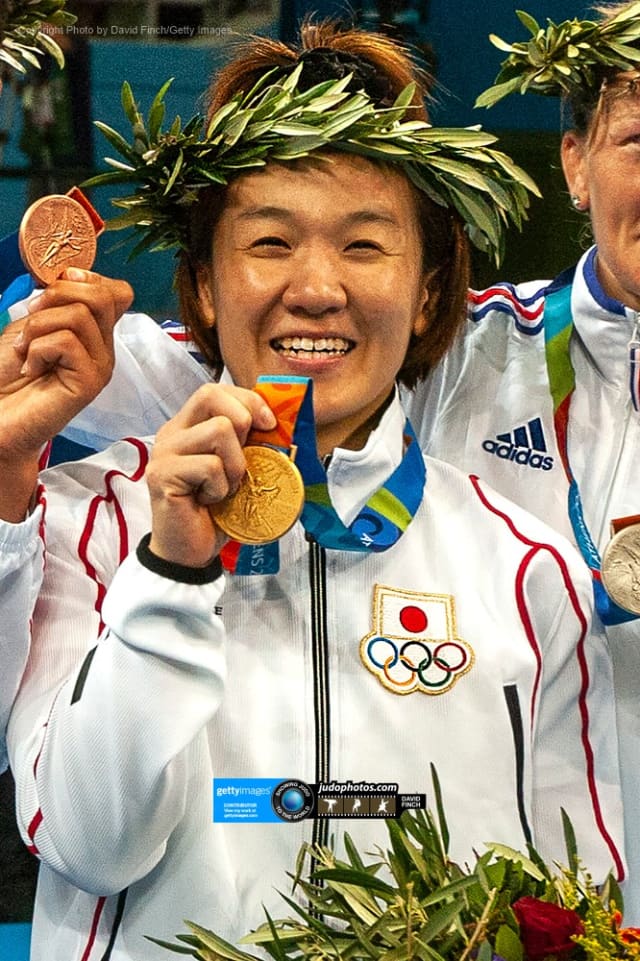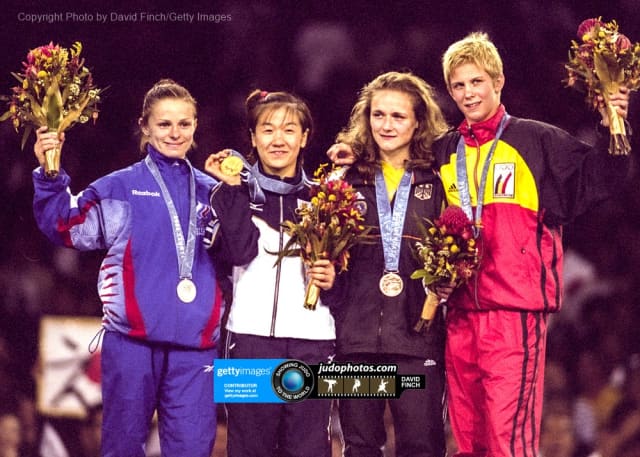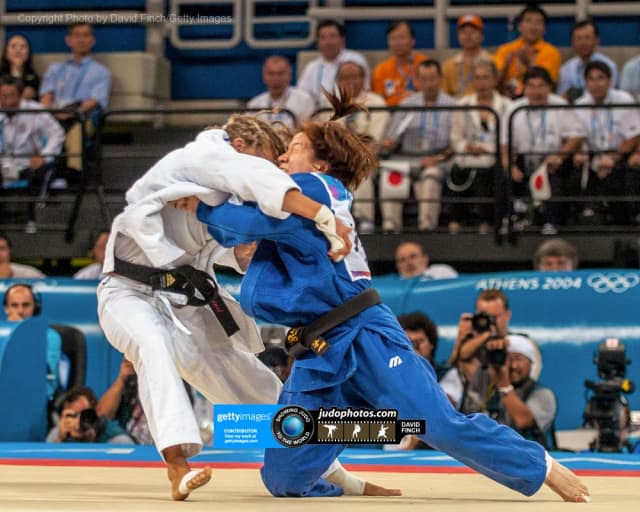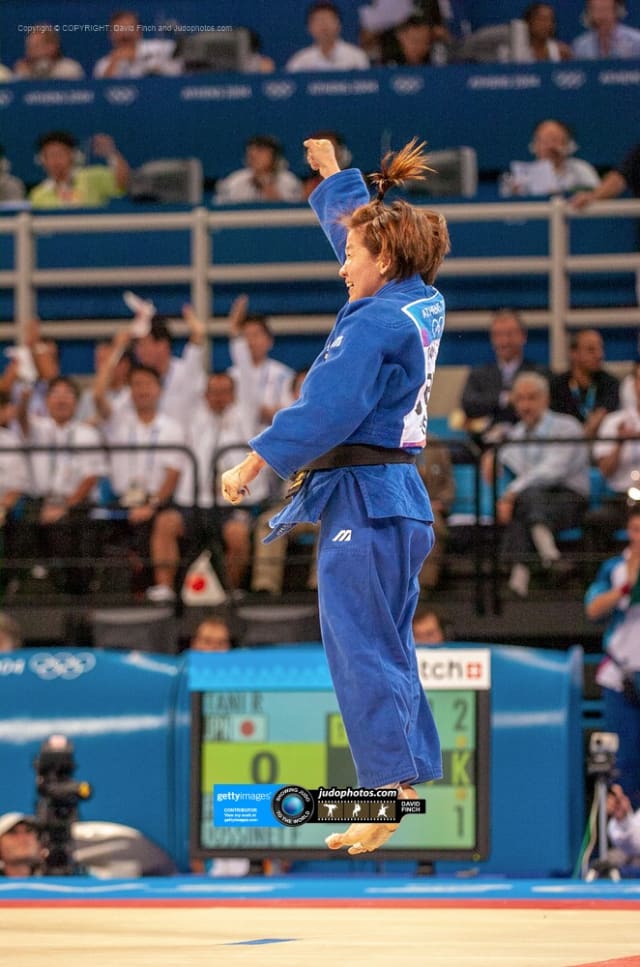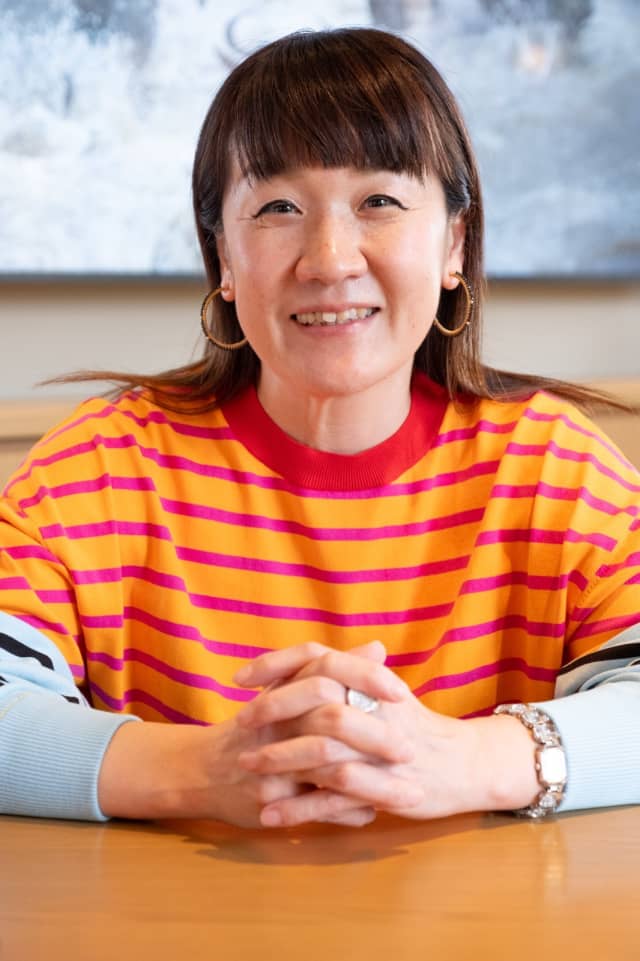We introduced the statistics, the almost impossible feat and the question in our first article in the series, which can be found here:
https://www.ijf.org/news/show/151-olympic-champions-tokyo-to-tokyo
A reminder of the question:
It could be said that to be in the company of an Olympic judo champion is to be presented with someone who has reached an absolute pinnacle, a ceiling which cannot be surpassed; there is nowhere further to ascend in the world of sport. We often find Olympic champions speaking with freedom and certainty, unafraid to share an opinion, speaking of their lives and journeys with confidence. For many we feel there is peace, and that can be magnetic and inspiring.
So the question is, did they become Olympic champion because of that character or did they become that person having won the Olympic gold medal?
“When I started judo I was 7 and at the time I was very quiet and hesitant, to do anything. After I started I became much more positive and found purpose and an aim to become stronger. I had dreams for the future. I always felt happy to practise judo. My character changed to become more positive, I was more able to speak with people. I was very small compared with all others my age and when I went to the All-Japan winter school championship at 11 years old I was only 25kg and 121cm tall, a head smaller than anyone else.
I love judo! Of course, while I’m training it’s very hard and I didn’t always reach my goals. When I felt sad not to reach a goal I set, I felt negative, but I still continued to love judo. Somehow the goal and the sport were separate."

"There are 4 reasons why it was me, why I became Olympic champion:
My personality is to always learn and I learned a lot through judo.
I developed my humanity from within the sport.
I learned how to bring out my abilities, how to bring out the best in me, through judo.
I always wanted to meet my goals in judo.
On top of those 4, communication with others also brought me joy so meeting new people was always fun.
I participated in my first Olympic Games in Barcelona at 16 years old and despite my young age, there were a lot of expectations. At 15, while still in junior high school there was the Fukuoka women’s tournament. There was expectation for me to get that gold medal. It was a big step with a lot of expectation and pressure. At that time, women’s judo wasn’t officially in the summer Games but after Fukuoka I really wanted to become Olympic champion. Of course I was very happy when the news came that women would be allowed to compete. It gave a lot of women and girls new dreams and goals; it was wonderful for women’s judo around the world.“
Ryoko Tani won silver at the 1992 Olympic Games and then silver again in 1996. Why did you continue after so much work had been done but there had been, in your mind, two losses?
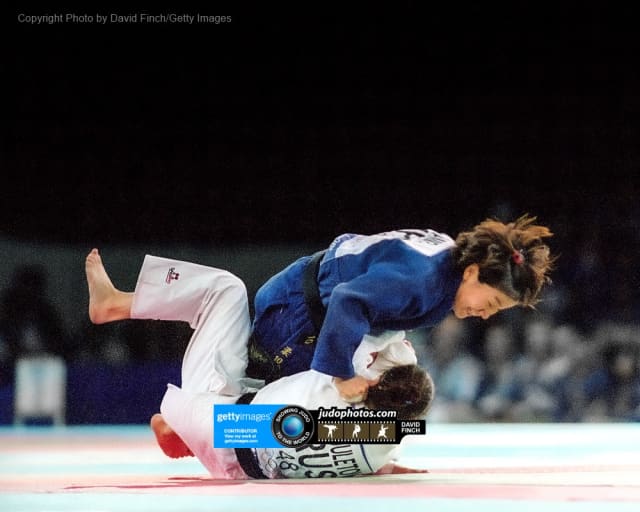
“In Barcelona, I was on the mat with a lot of pressure and I lost against Nowak (FRA). I fought a lot of famous judoka, all of the judoka who were fighting on the circuit at the top level and it was a kind of movement to stay with them and move to the next. 4 years seemed like a long time in 1992 but I had the confidence to think I could continue and get the gold next time but again I didn’t.
After Barcelona I worked very hard and when I faced opponents at the Olympic level, I had even more expectation and pressure than usual. I put all my effort into the preparation. Again the result was silver, in 1996, and when I came back after Atlanta I took two months away; I was considering whether to continue to Sydney or not. I had been thinking about it already for many years and it was a huge challenge. I decided to face this challenge and move forward to Sydney so I had to build up both mind and body. I had the choice but I did think that perhaps when I might become a mother or grandma in the future, I would regret not going for it."
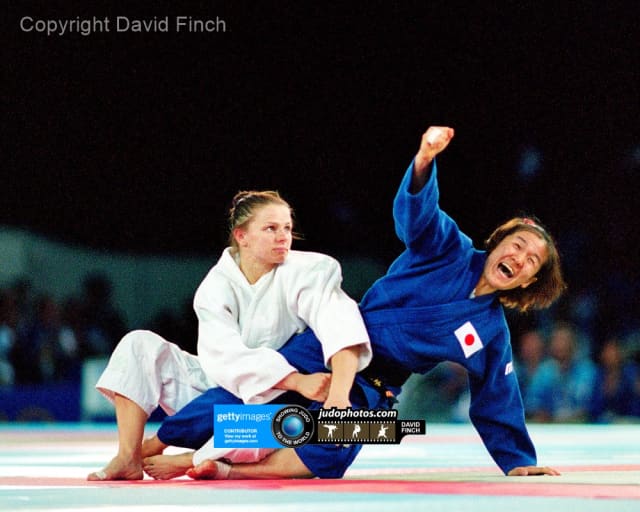
"There were two reasons why it was me that day in Sydney. There were a lot of women athletes and all were mentally and physically so strong, all at a similar level. Despite that, I really believed myself only to have the gold. In my mind, the best result was gold and also the worst result was gold and that was my message to myself. Nothing less than gold was acceptable. This message reached the public too. The second reason was that the previous 8 years brought a lot of support from a lot of people, everyone was included from my parents onwards. I was with Toyota and people from the company came from all over the world to cheer me on; many friends and training partners and coaches, all came. The training schedule was managed by me, by myself, every day and all the training partners followed my plan. Maybe they also did enough to be able to achieve some big results because they worked so hard for me. I didn’t want to have regrets after Sydney; I didn’t want to regret anything. I didn’t have any special coaches or national team coaches at that time."
"I created my own team and plan called Yawara. The Ju of Judo also has a different pronunciation which is linked to the word ‘Yawara’ and so this held a great deal of meaning for me, to be flexible and find my own way. I had some sort of change mentally. After three Olympic cycles I learned and experienced a lot. The result of that was the gold medal and that brought me even more positivity. It was then that I thought maybe I could do it again. I was confident with my process, with the training method and technical training. I had learned how to reach the gold medal.
It’s difficult to explain. Before I organised the Yawara team, I learned a lot already about what is the best training way. I tried a lot of different ways to train, from the age of 7, but after a lot of effort I reached that gold medal. After all this experience, I could understand some key points by myself, to be able to reach the very top. My mind’s goals and the team Yawara goals were all matched at the same time, all aligned.
After I reached the gold medal, the big change was that I became able to speak in public, became more confident. I developed an even more positive character, I could talk and express myself in ways I couldn’t before. Also I enjoyed contributing to the raising of awareness and popularity for women’s judo. Through media experiences I began to feel more outgoing and that confidence became visible in all areas of my life."
"I would also like to say that through my 5 Olympic Games, for the first three I was single, for the 4th one I was married and at the 5th one I had my son. The Olympic story is therefore my life story!”
Ryoko Tani (nee Tamura) is the most decorated woman in Olympic judo history. Alongside her 5 Olympic medals (2 gold, 2 silver and 1 bronze) she also won 7 world titles, 6 of them consecutively.


